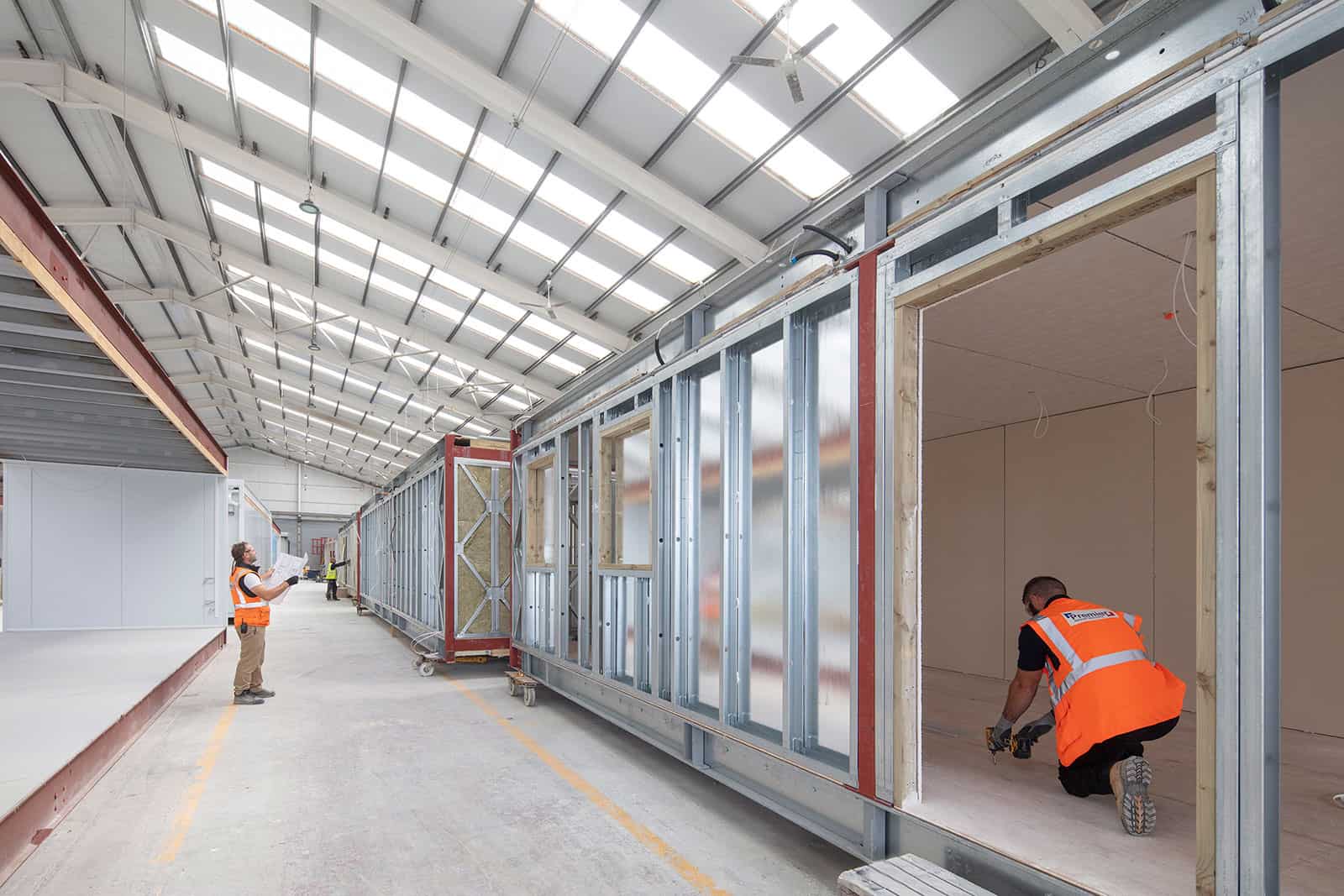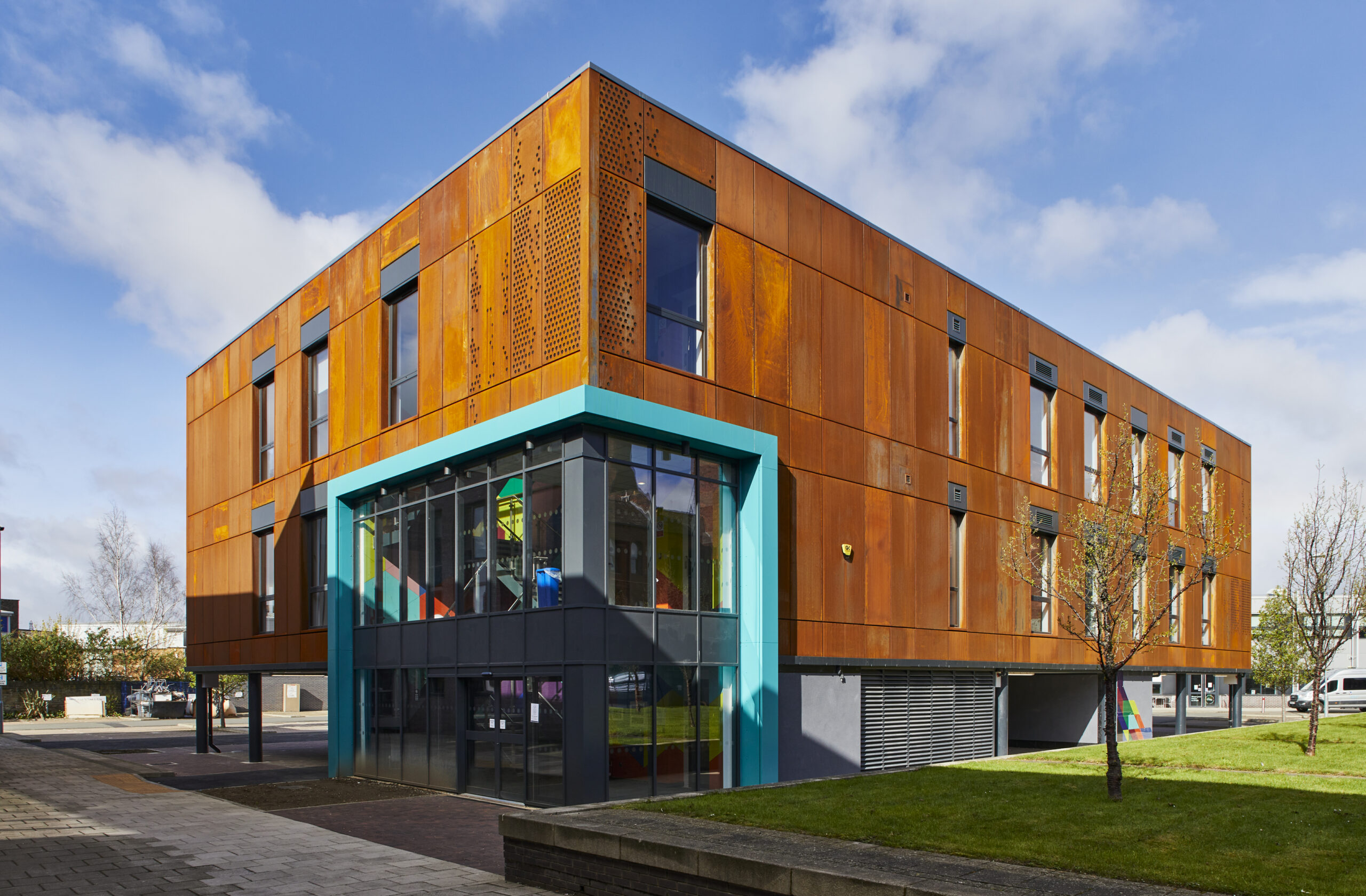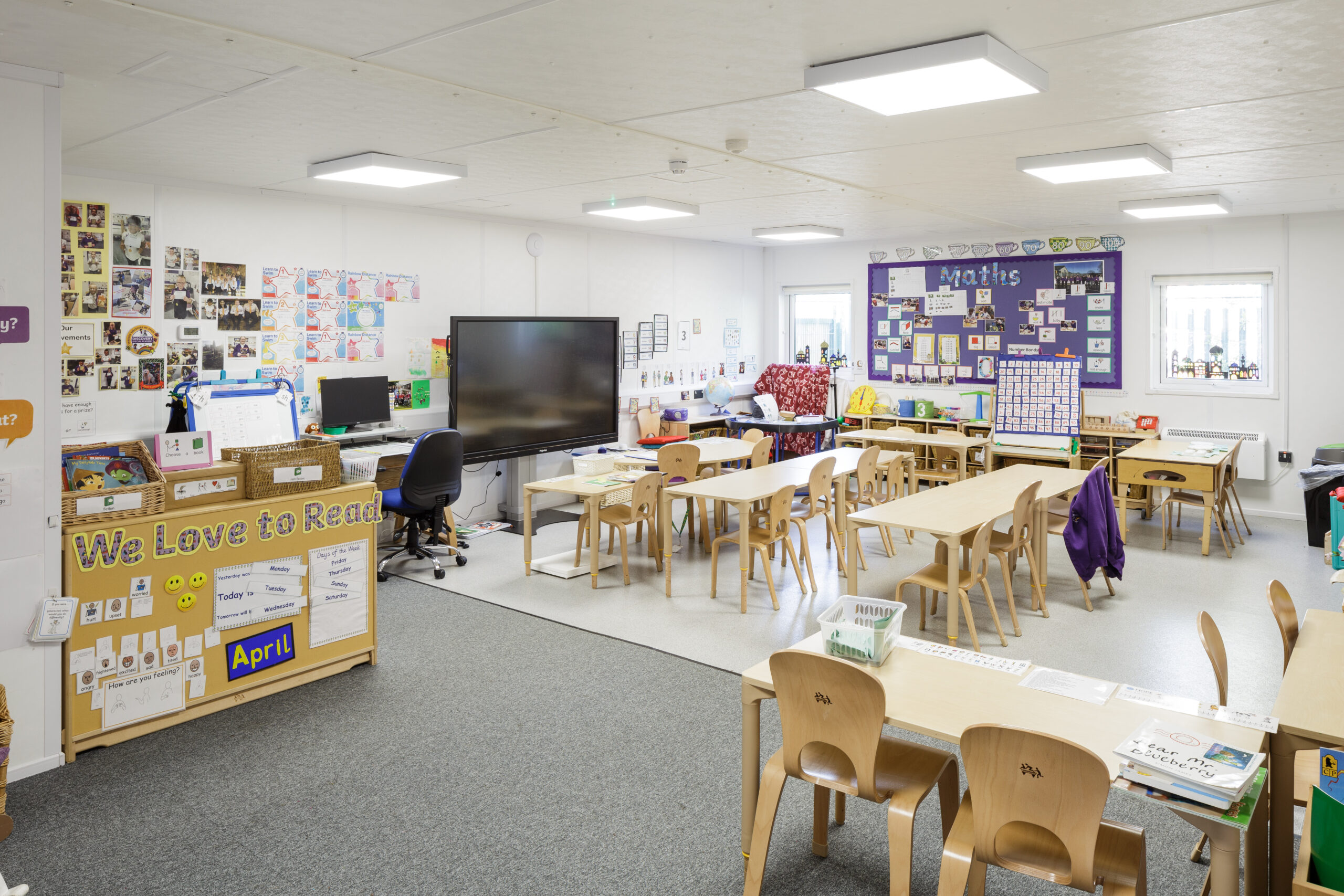David Harris, Managing Director of Premier Modular, looks at the renewed focus on offsite construction.

In this article, David Harris, Managing Director of Premier Modular – one of the UK’s leading offsite specialists, looks at the renewed focus on offsite construction and how it is helping to address some of the challenges now facing public services and the UK economy.
There is definitely a surge in interest in offsite construction, particularly in the residential sector. The benefits of taking a manufacturing approach to construction are clear and have been well documented – but are now more relevant than ever before:
- Programme times can be reduced by up to 60 per cent
- Cost benefits can be up to 40 per cent with greater cost certainty, higher productivity, fewer defects, a faster return on investment and earlier occupation
- There are significant reductions in on-site labour, with all the associated health and safety benefits – a critical advantage in these times of social distancing
- There is less disruption and fewer vehicle movements to site, resulting in reductions in pollution and congestion in our towns and cities
- Waste is reduced by up to 90 per cent.
The Implications of Covid-19 on the Offsite Sector
The Covid-19 pandemic has resulted in a renewed focus on offsite manufacturing. UK construction was already facing huge challenges around productivity which has a major impact on the affordability of delivering new public sector projects – from hospitals to schools and affordable housing.
In a recent report published by Mace, ‘each UK operative on site produced around 20 per cent less per week compared to construction workers in Germany’. That is a shocking figure.
The short-term impact of Covid-19 on UK construction has been dramatic with many projects being halted completely during the lock down, which will result in cost increases and delayed completion. Sites have re-opened but many are having to operate at a reduced level to maintain social distancing requirements. This situation contrasts sharply with our operations and really does illustrate how offsite manufacturing can reduce the risk of delays and cost increases.
We have five factories in East Yorkshire, spanning 12,000sqm. These all remained at capacity throughout the lockdown and continue to do so. We have always said it is easier to manage health and safety in a controlled factory environment – as well as to maintain consistently higher build quality.
Our buildings move through the factory in a sequential process, so it is relatively easy to avoid work being carried out by different trades in the same area at the same time. This makes social distancing much more controllable in a factory than on a construction site. We extended working hours to allow us to create more space in the factory whilst minimising any impact on productivity and output. Work was separated out in the factory by having teams working in specific cells.
During the pandemic, work continued on all Premier sites, with the exception of just two projects which have since re-opened. This proves how offsite construction can mitigate the effects of the restrictions imposed by Covid-19 and demonstrates how it can reduce risk.
What we need now is for more enlightened clients and building designers to better understand how offsite manufacturing methodologies can be applied to the specification and delivery of construction projects. There should be a more collaborative approach to procurement and an approach that at least does not disadvantage against offsite solutions.
The Skills Issue
There are clear skills shortages across the construction industry. We are less affected because we employ a multi-skilled, permanent workforce but we still have to attract new talent into the offsite sector with a manufacturing mindset.
As the offsite industry continues to mature, we will need new skillsets to deliver higher productivity, enhanced quality, and improved sustainability and health and safety performance.
Build Build Build!
We have welcomed the Government’s recent announcements, particularly the reforms to the planning system which should stimulate the construction sector and support economic growth.
Key for the offsite sector are the changes to remove the need for a lengthy planning process to demolish and rebuild vacant buildings to create new housing. Making it easier to develop brownfield sites and to repurpose land owned by Government are also important measures.
As an industry, we now need Government to support local authorities and housing providers in driving the uptake of offsite construction. We have to continue to encourage innovation in construction to ensure new homes meet green targets, use new technology and minimise impact on the environment.
We are expanding into the offsite residential sector. Our building systems are well suited to mid-rise housing schemes and we fully fit out the apartments offsite in our factory. We have the capacity to produce up to 100,000sqm of living space per year in a single shift, enabling us to work on large-scale developments – from student accommodation and build-to-rent schemes, to key worker accommodation and housing for homeless people.
We are currently delivering a £7.5m contract for Buckinghamshire Council to construct 58 apartments which will provide facilities for homeless people and their families in urgent need of housing. Work on site is underway while the apartments are being manufactured and fitted out in our factory. The homes will be delivered to site this Autumn for completion in 2021.
The Increasing Use of Offsite in Other Sectors
The Government has also announced significant investment in healthcare, infrastructure, and education and with a welcome presumption in favour of offsite. This means we are expecting the number of offsite projects to continue to increase.
Our permanent buildings division provides bespoke offsite solutions for schools, hospitals, infrastructure and commercial projects and our interim buildings division supplies high quality site accommodation to both tier one and regional contractors in London and across the UK, along with interim school and hospital buildings. We are therefore well placed to capitalise on the rising demand.
In the education sector, we are anticipating a rise in school projects which were delayed by the pandemic. The pressure to deliver these buildings in a shorter time to meet the required number of school places is likely to result in wider use of modular construction.
Flexibility will be key. Offsite manufacturers who can provide buildings manufactured and fitted out entirely offsite – or with the expertise to marry offsite with traditional construction methods to create hybrid solutions – can better meet individual project requirements.
Likewise, there should be the flexibility to work as a principal contractor directly for the client, as a supply chain partner to a main contractor or using construction management. Then the opportunities for offsite are tremendous.











